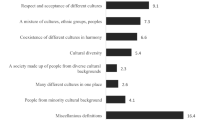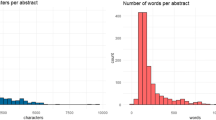Abstract
Lack of attention to definitions of indigeneity is a problem in both political theory and practice. Defining indigeneity has at least two important consequences: (a) it affects who has access to resources or rights reserved for Indigenous peoples; and (b) it shapes the kinds of privileges and resources available to Indigenous peoples. In this article, I draw on Theodor Adorno’s concept of ‘nonidentity’ as a resource for exploring the power and limits of conceptions of indigeneity. I argue that recognizing the non-identical aspects of indigeneity enables critical engagement with constellations of concepts that attend to the distinctive aspects of indigeneity in particular moments and locations. To illustrate my argument, I draw on one conception of indigeneity that could be characterized as non-identity thinking – a research approach called Kaupapa Māori. I suggest that non-identity is a promising resource for conceptualizing indigeneity as it has potential to respond to some of the key problems with current responses to indigeneity; notably, that universal definitions may not best represent what it means to be Indigenous, and that unreflective acceptance of current definitions fails to produce just outcomes.
Similar content being viewed by others
References
Adorno, T. (2000 [1966]) Negative Dialectics. London: Routledge.
Adorno, T. (2008 [2003]) Lectures on Negative Dialectics. Cambridge: Polity Press.
Barcham, M. (2002) (De)Constructing the politics of indigeneity. In: D. Ivison, P. Patton and W. Sanders (eds.) Political Theory and the Rights of Indigenous Peoples. Cambridge: Cambridge University Press, pp. 137–151.
Barvosa, E. (2008) Wealth of Selves: Multiple Identities, Mestiza Consciousness and the Subject of Politics. College Station: Texas A&M University Press.
Benjamin, W. (1977 [1928]) Origin of German Tragic Drama. London: New Left Books.
Bishop, R. (1994) Initiating Empowering Research? New Zealand Journal of Educational Studies 29(1): 175–188.
Bishop, R. (1998) Freeing ourselves from neocolonial domination in research: A Kaupapa Maori approach to creating knowledge. Cultural Studies and Education 11(2): 1–30.
Bishop, B. (2005) Freeing ourselves from neo-colonial domination in research: A Kaupapa Māori approach to creating knowledge. In: N.K. Denzin and Y.S. Lincoln (eds.) The Sage Handbook of Qualitative Research. Thousand Oaks: Sage Publications, pp. 109–138.
Brown, W. (1993) Wounded attachments. Political Theory 21(3): 390–410.
Buck-Morss, S. (1977) The Origin of Negative Dialectics. New York, NY: The Free Press.
Byrd, J. (2011) The Transit of Empire: Indigenous Critiques of Colonialism. Minneapolis, MN: University of Minnesota Press.
Cobo, J.M. (1986/7). Study of the Problem of Discrimination against Indigenous Populations. United Nations Document E/CN.4/Sub.2/1986/7 and Addenda 1-4. 21 January 2013, http://www.un.org/esa/socdev/unpfii/en/second.html.
Colchester, M. (2002) Response: Defining oneself and being defined as, indigenous. Anthropology Today 18(3): 23–24.
Cruikshank, J. (1998) The Social Life of Stories: Narrative and Knowledge in the Yukon Territory. Lincoln: University of Nebraska Press.
Coulthard, G. (2014) Red Skin, White Masks: Rejecting the Colonial Politics of Recognition. Minneapolis, MN: University of Minnesota Press.
Dallmayr, F. (2004) The underside of modernity: Adorno, Heidegger, and Dussel. Constellations 11(1): 102–120.
Evans, M et al. (2012) Funding and ethics in Métis community based research. International Journal of Critical Indigenous Studies 5(1): 54–66.
Fabish, R. (2012) The Impact of Tā Te Māori Rangahau / Methodologies of Māori Research on My Work. Te Kāhui Kura Māori, 1(2). 30 January 2013. http://nzetc.victoria.ac.nz/tm/scholarly/tei-Bid00_2Kahu-t1-g1-t3.html.
Finlayson, J.G. (2002) Adorno on the ethical and ineffable. Journal of European Philosophy 10(1): 1–25.
Gaudry, A.J.P. (2011) Insurgent research. Wicazo Sa Review 26(1): 113–136.
Gaudry, A. (2013) The Métis-ization of Canada: The process of claiming Louis Riel, of Métissage, and the of Métis People as Canada’s Mythical Origin. Aboriginal Policy Studies 2(2): 64–87.
Gaudry A. and Leroux D. (2017) White Settler revisionism and making Métis everywhere: The evocation of Métissage in Quebec and Nova Scotia. Critical Ethnic Studies 3(1): 116–142.
Horkheimer, M. and Adorno, T.W. (1991 [1944]) Dialectic of Enlightenment. New York: Continuum Publishing Company.
Institutional Review Board (IRB) of Social and Behavioral and Sciences at the University of Virginia. (2013) IRB: A Brief History. 15 March 2013, http://www.virginia.edu/vpr/irb/sbs/about_history.html.
International Labour Organization (1989) Convention 169: Indigenous and Tribal Peoples Convention. Geneva (June 27, 1989), Article 1. 21 January 2013, http://www.ilo.org/dyn/normlex/en/f?p=1000:12100:0::NO::P12100_ILO_CODE:C169.
Ivison, D, Patton, P. and Sanders, W. (2002) Introduction. In: D. Ivison, P. Patton and W. Sanders (eds.) Political Theory and Indigenous Rights. Cambridge: Cambridge University Press, pp. 1–24.
Johnson, M. (2016) The Land is Our History. New York, NY: Oxford University Press.
Kauanui, J.K. (2008) Hawaiian Blood: Colonialism and the Politics of Sovereignty and Indigeneity. Durham, NC: Duke University Press.
Kiloh, K. (2017) Towards an ethical politics: T. W. Adorno and Aesthetic self-relinquishment. Philosophy and Social Criticism 43(6): 571–598.
Kymlicka, W. (1996) Multicultural Citizenship. Oxford: Oxford University Press.
Lee, J.B.J. (2003) Ngā Tohutohu: A Purākau Approach to Maori Teacher Narratives. In: D. Fraser and R. Openshaw (eds.) Informing Our Practice, Special Volume: Selections from the 2002 TEANZ Conference. Palmerston North: Kanuka Grove Press, pp. 29–42.
Macdonald, B. (2012) ‘Theodor Adorno, Alterglobalization, and non-identity politics. New Political Science 34(3): 321–337.
MacDonald, L. (2016) Decolonisation starts in a name: Moving on from the pretence that ‘Māori’ or ‘indigenous peoples’ are explanatory frames. Political Science 68 (2):105–123.
McIntosh, I. (2001) UN permanent forum on indigenous issues. Anthropology Today 27(6): 22–23.
Merlan, F. (2009) Indigeneity: Global and local. Current Anthropology 50(3): 303–333.
Moreton-Robinson, A. (ed.) (2011) Whitening Race. Canberra: Aboriginal Studies Press.
Moreton-Robinson, A. (2015) The White Possessive: Property, Power, and Indigenous Sovereignty. Minneapolis, MN: University of Minnesota Press.
Nepe, T. (1991) Te Toi Huarewa Tipuna: Kaupapa Maori, An Educational Intervention System. Unpublished MA Thesis, Auckland: University of Auckland.
O’Conner, B. (2004) Adorno’s Negative Dialectic: Philosophy and the Possibility of Critical Rationality. Cambridge: The MIT Press.
Pelican, M. (2008) Complexities of indigeneity and autochthony: An African example. American Ethnologist 36(1): 52–65.
Pihama, L. (2001) Tehei Mauri Ora, Honouring Our Voices: Mana Wahine As Kaupapa, Māori Theoretical Framework. Unpublished PhD Thesis. Auckland: The University of Auckland.
Pihama, L. (2010) Kaupapa Māori theory: Transforming theory in Aotearoa. He Pukenga Korero 9(2): 5–14.
Pihama, L. (2017) Colonization and the importation of ideologies of race, gender, and class in Aotearoa. In: E.McKinley and L.T. Smith (eds.) Handbook of Indigenous Education. Singapore: Springer.
Pipi, K. et al. (2004) A research ethic for studying Māori and Iwi provider success. Social Policy Journal Document 23: 141–153.
Ruru, J. (2018) Listening to Papatūānuku: a call to reform water law. Journal of the Royal Society of New Zealand 48(2–3): 215–224.
Schick, K. (2009) ‘To lend a voice to suffering is a condition for all truth’: Adorno and international political thought. Journal of International Political Theory 5(2): 138–160.
Secretariat of the United Nations Permanent Forum on Indigenous Issues. (2013) Introduction: State of the world’s indigenous peoples. United Nations. 21 February 2013, http://www.un.org/esa/socdev/unpfii/documents/SOWIP_introduction.pdf.
Shah, A. (2007) The dark side of indigeneity? Indigenous people, rights and development in India. History Compass 5(6): 1806–1832.
Shah, A. (2010) In the shadows of the state: Indigenous politics, environmentalism, and insurgency in Jharkhand, India. Durham, NC: Duke University Press.
Simpson, A. (2007) On ethnographic refusal: Indigeneity, ‘Voice’ and colonial citizenship. Junctures 9: 67–80.
Simpson, A. (2014) Mohawk Interruptus: Political Life Across the Borders of Settler States. Durham, NC: Duke University Press.
Simpson, A. and Smith, A. (2014) theorising Native Studies. Durham, NC: Duke University Press.
Simpson, L. (2011) Dancing On Our Turtle’s Back: Stories of Nishnaabeg Re-Creation, Resurgence and a New Emergence. Winnipeg: ARP Books.
Simpson, L. (2017) As We Have Always Done: Indigenous Freedom Through Radical Resistance. Minneapolis, MN: Minnesota University Press.
Sissons, J. (2005) First Peoples: Indigenous Cultures and Their Futures. London: Reaktion Books.
Smith, L. T. (1999) Decolonizing Methodologies. London: Zed Books.
Stone, A. (2006) Adorno and the disenchantment of nature. Philosophy and Social Criticism 32(2): 231–253.
Stone, A. (2008) Adorno and logic. In: D. Cook (ed.) Theodor Adorno: Key Concepts. Stocksfield: Acumen Publishing Limited, pp. 47–63.
TallBear, K. (2013) Native American DNA: Tribal Belonging and the False Promise of Genetic Science. Minneapolis, MN: University of Minnesota Press.
Taylor, C. (1992) The politics of recognition. In: A. Gutman (ed.), Multiculturalism and the Politics of Recognition: An Essay by Charles Taylor. Princeton: Princeton University Press, pp. 25–74.
Tolich, M. (2002) ‘Pākehā “Paralysis”: Cultural safety for those researching the general population of Aotearoa. Social Policy Journal of New Zealand 19: 164–178.
Tomlins Jahnke, H. and Taiapa, J. (1999) Māori research. In: C. Davidson and M. Tolich (eds.) Social Science Research in New Zealand: Many Paths to Understanding. Longman: Auckland, pp. 39–50.
Tsosie, R. (2005) The new challenge to native identity: An essay on “Indigeneity” and “Whiteness”. Journal of Law & Policy 18: 55–98.
United Nations Permanent Forum on Indigenous Issues. (2012a) History of indigenous peoples and the international system. United Nations. 26 March 2012, http://social.un.org/index/IndigenousPeoples/AboutUsMembers/History.aspx.
United Nations Permanent Forum on Indigenous Peoples. (2012b) Data and Indicators. United Nations. 27 April 2012, http://social.un.org/index/IndigenousPeoples/CrossThematicIssues/DataandIndicators.aspx.
Varadharajan, A. (1995) Exotic Parodies: Subjectivity in Adorno, Spivak, and Said. Minneapolis, MN: University of Minnesota Press.
Waldron, J. (2002) Indigeneity? First Peoples and Last Occupancy. Lecture at Victoria University of Wellington Law School: 55–82.
Walker, S., Eketone, A. and Gibbs, A. (2006) An exploration of Kaupapa Maori research, principles, processes and applications. International Journal of Social Research Methodology 9(4): 331–344.
Whitinui, P. (2012) Indigenizing the disciplines. International Indigenous Development Conference. Auckland, New Zealand. 28 June 2012 (attended by author).
Yamauchi, T. and Markman, A.B. (1998) Category learning by inference and classification. Journal of Memory and Language 39: 124–148.
Yamauchi, T. and Markman, A.B. (2000) Inference using categories. Journal of Experimental Psychology 26(3): 776–795.
Young, I.M. (2001) Equality of whom? Social groups and judgments of injustice. Journal of Political Philosophy 9(1): 1–18.
Acknowledgements
Many thanks to my advisors and colleagues who provided valuable feedback on earlier versions of this article, including Lawrie Balfour, Colin Bird, Jennifer Rubenstein, Jeffrey Olick, Kate Schick, Greta Snyder, and Denise Walsh. I am also grateful to the anonymous reviewers and editors at Contemporary Political Theory for their thoughtful engagement and constructive comments.
Author information
Authors and Affiliations
Corresponding author
Additional information
Publisher's Note
Springer Nature remains neutral with regard to jurisdictional claims in published maps and institutional affiliations.
Rights and permissions
About this article
Cite this article
Timperley, C. Constellations of indigeneity: The power of definition. Contemp Polit Theory 19, 38–60 (2020). https://doi.org/10.1057/s41296-019-00334-y
Published:
Issue Date:
DOI: https://doi.org/10.1057/s41296-019-00334-y




